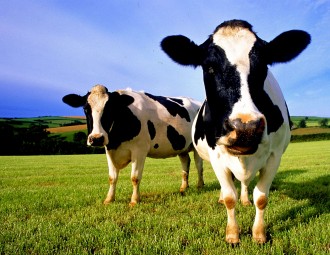Belarus government injects money in agriculture to solve problems with payment arrears in economy
 agro-new.ru
agro-new.ru
The government will provide bank guarantees and subsidize loan interest rates to pay for agricultural crop supply in 2016. Compared with 2015, such soft loans will be reduced by 20%.
Financial health of agricultural enterprises would not allow seizing the state support completely and soft loans would partially reduce overall arrears in the economy.
According to the Council of Ministers resolution No 291 of April 8th, 2016, the government will provide guarantees that loans, issued for a one-year period with a total worth BYR 4.1 trillion to some food processing companies to buy crops from agricultural enterprises, will be repaid, so as the food will be processed for the government needs in 2016. Ruble loans will be issued at discount rate + 3%, and the state will compensate the discount rate in full to enterprises from the state budget. If loans are issued in Russian rubles, taking into account the compensation, the loan rate for enterprises will not exceed 10.5%.
Such mechanism has been used each year in order to ensure spring field works, and that agricultural enterprises have the money to pay for machinery and spare parts, fuel and energy resources and fertilizers. Compared with 2015, the state will cut such subsidies by 20% in 2016 due to the restrictions on administrative lending to the economy and the lack of budgetary funds. Most agricultural enterprises receive soft loans from banks. In 2015, the average interest rate on such loans in national currency totalled 10.7% per annum and in foreign currency - 7% per annum, which is significantly lower than the average in the economy.
The state cannot stop supporting the agriculture. More than half of agricultural enterprises are unprofitable without the state support. In January-February 2016, agricultural enterprises reported net losses at BYR 533 billion. Agriculture is a chronic energy debtor and it has the largest amount of wage arrears in the country. Most agricultural organizations do not have own funds.
By providing financial support to agriculture, the state solves several problems. Agricultural enterprises will use borrowed funds to pay the overdue debt to the industry and energy, which would partially solve the problem with payment arrears in the economy.
Some funds will be used to pay wages, which would somewhat boost retail trade turnover in the regions. In addition, the state will guarantee a certain volume of crop production at a fixed price for its own needs, which will help to somewhat curb inflation and will provide the food industry with raw materials. Since the usual amount of the state aid will be reduced, some agricultural enterprises will undergo restructuring or will be placed under control of more efficient enterprises.
Using soft loans, the state is attempting to solve the non-payment problem in agriculture and connected economic sectors. Due to the reduced amount of the state aid, not all arrears in agriculture will be repaid, some enterprises are likely to be reorganised and subsequently transferred under the control of a more effective owner.
-
03.01
-
07.10
-
22.09
-
17.08
-
12.08
-
30.09










































